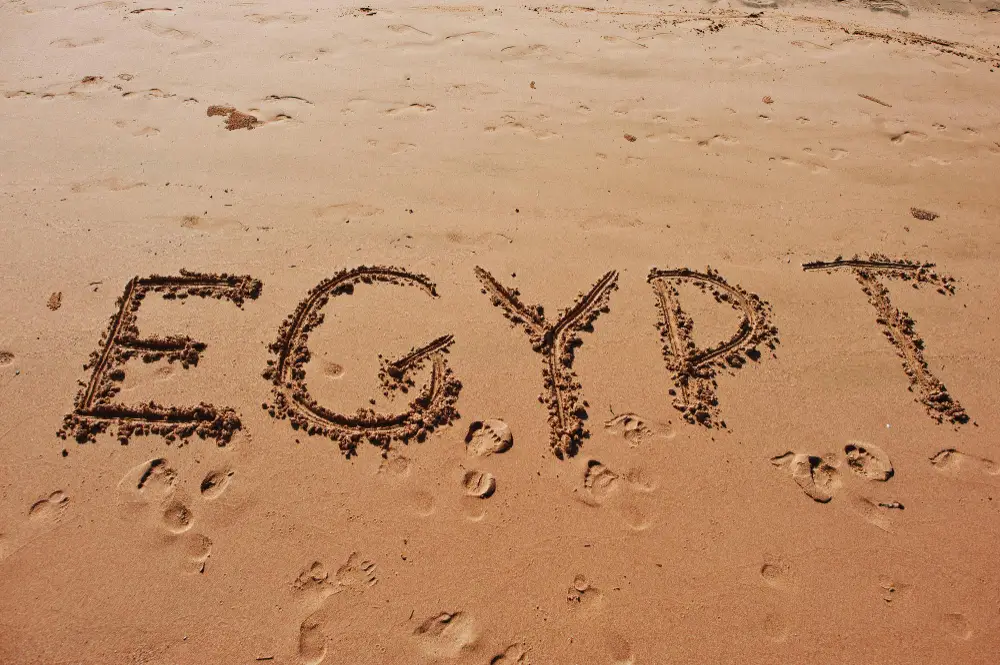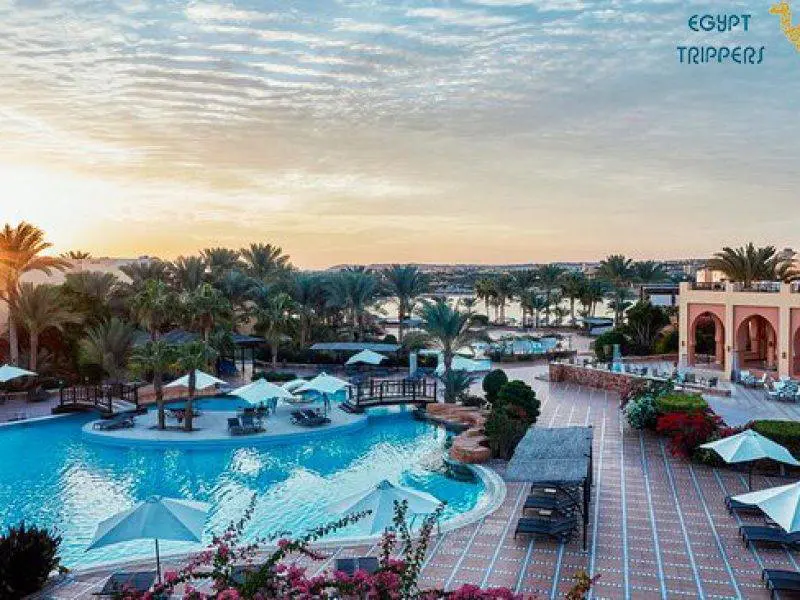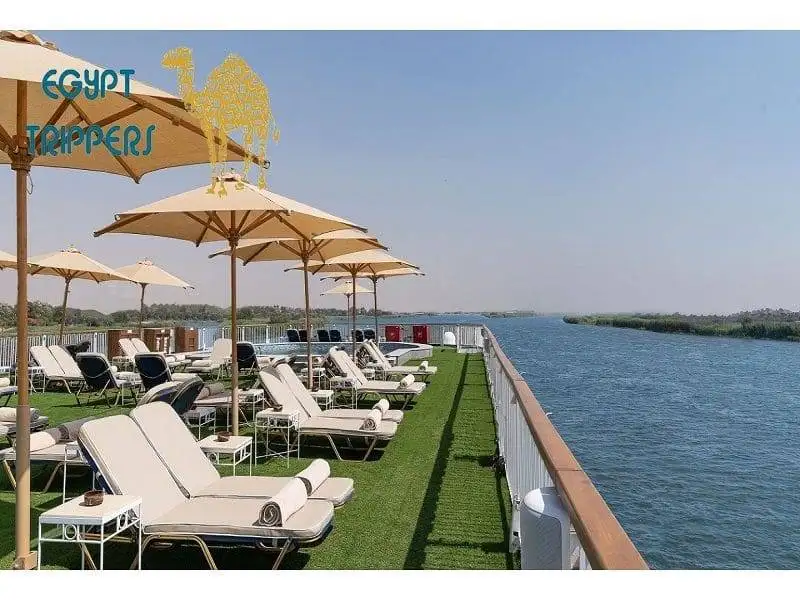Beyond Dialect: A Definitive Answer to what is the official language in egypt (The Constitutional Truth)

If you’ve ever wondered what is the official language in Egypt, you’re not alone. Egypt’s culture is rich, ancient, and incredibly diverse — so it makes sense that its language story is just as fascinating.
From the Arabic you’ll hear in bustling Cairo streets to the centuries-old languages preserved in churches and communities, Egypt’s linguistic identity is a reflection of its long, layered history.
But let’s start with the basics and explore what Egyptians speak today, why it matters, and how it shapes everyday life in this dynamic country.
what is the official language in egypt?
The official language of Egypt is Arabic, specifically Modern Standard Arabic (MSA), which is used in government, education, news, and formal communication.
But in daily life, Egyptians speak a different version called Egyptian Arabic (Masri) — the most widely understood Arabic dialect across the Middle East thanks to Egyptian cinema, music, and media.
Quick Breakdown:
-
Official language: Modern Standard Arabic
-
Everyday spoken language: Egyptian Arabic (Masri)
-
Other languages you’ll still hear:
-
English (common in cities, tourism, and business)
-
French (less common, mainly among older generations and certain schools)
-
Coptic (used only in Coptic Church liturgy)
-
So while Arabic is the official language, Egypt’s linguistic landscape is much broader and shaped by its long multicultural history.
Language and Hieroglyphic Writing
Egypt’s linguistic story stretches far beyond modern Arabic. Long before Arabic became the official language, ancient Egyptians developed one of the world’s oldest and most iconic writing systems: hieroglyphics.
Ancient Egyptian Language
For thousands of years, Egyptians spoke a series of evolving languages collectively known as Ancient Egyptian, which later transformed into Coptic — still used today in the liturgy of the Coptic Orthodox Church. This makes Coptic the final stage of the ancient Egyptian language family.
Hieroglyphic Writing
Hieroglyphics were more than just symbols carved into temple walls. They were a sophisticated writing system combining:
-
Logograms (symbols representing whole words)
-
Phonetic signs (sounds)
-
Determinatives (clarifying the meaning of words)
This system allowed ancient Egyptians to document religion, science, administration, and daily life. It was used mainly for monumental inscriptions, while hieratic and later demotic scripts served as quicker, more practical writing forms.
Rediscovery Through the Rosetta Stone
For centuries, hieroglyphics couldn’t be read — until the Rosetta Stone was discovered and later deciphered by Jean-François Champollion in 1822. His breakthrough restored the ability to understand ancient Egyptian history directly from its original texts.
Legacy Today
Although hieroglyphics are no longer a spoken or functional writing system, they remain a powerful symbol of Egypt’s identity. Visitors still see them on temples, tombs, and museums — reminders of a civilization that pioneered written communication long before modern alphabets existed.
Modern Standard Arabic (MSA) in Egypt
Modern Standard Arabic (MSA), known in Arabic as al-Fuṣḥā, is the official language of Egypt and the standardized form used across the entire Arab world. While it’s not the language Egyptians use in casual conversation, it plays a crucial role in education, government, media, and formal communication.
Where MSA Is Used
MSA appears in contexts that require clarity, formality, and consistency across Arabic-speaking countries, such as:
-
Government documents and official announcements
-
Newspapers, magazines, and formal writing
-
Television news broadcasts
-
School textbooks and university lectures
-
Religious speeches (khutbahs) and formal public events
MSA vs. Spoken Arabic
Although Egyptians learn MSA in school from a young age, they don’t speak it naturally in daily life. Instead, they use Egyptian Arabic (Masri) — a more relaxed, expressive dialect shaped by local culture, history, and media.
This creates a unique linguistic situation:
Egyptians read and write in MSA, but live and speak in Masri.
Why MSA Matters in Egypt
-
It connects Egypt linguistically to the broader Arab world.
-
It ensures uniformity in education and official communication.
-
It maintains access to centuries of Arabic literature, science, and scholarship.
The Challenge for Learners
For non-Arabic speakers, MSA is often the starting point. But to communicate casually in Egypt, learning some Egyptian Arabic phrases becomes essential — especially when dealing with taxi drivers, markets, and daily interactions.
How did Arabic get to Egypt?
Arabic arrived in Egypt in the 7th century during the early Islamic expansion. In 640–641 AD, the Arab Muslim army led by Amr ibn al-As entered Egypt, then part of the Byzantine Empire, marking the beginning of a major cultural and linguistic shift.
The Early Spread of Arabic
At first, Arabic was mainly used by the new Muslim administration for:
-
Governance
-
Tax records
-
Military communication
The local population still spoke Coptic, the final stage of the ancient Egyptian language. Over time, however, Arabic spread through several key factors:
1. Administrative Adoption
By the late 7th century, Arabic replaced Greek and Coptic in government offices, making it the language of official records and bureaucracy.
2. Religious Influence
As Islam spread, Arabic became the language of:
-
The Qur’an
-
Religious education
-
Friday sermons
-
Islamic law
This strengthened its role in public and cultural life.
3. Trade and Daily Interaction
Arabic-speaking merchants, settlers, and officials lived among Egyptians, accelerating bilingualism.
Gradually, Arabic became the primary medium of communication.
4. Decline of Coptic in Daily Use
While Coptic remained important in the Church, it slowly faded from everyday life. By the 12th–13th centuries, Arabic had become Egypt’s main spoken language.
5. Evolution of the Egyptian Dialect
As Arabic blended with local influences (Coptic, Greek, Turkish, and others), it developed into Egyptian Arabic (Masri) — the dialect widely spoken today.
Tips for Learning the Egypt Language as a Traveler
You don’t need to master Arabic to enjoy Egypt, but learning a few words of Egyptian Arabic (Masri) can make your trip smoother, friendlier, and a lot more fun. Here are practical tips to help you pick it up quickly:
Start With Everyday Phrases
Focus on simple words you’ll use constantly:
-
Salam alaikum (hello)
-
Shukran (thank you)
-
Kam da? (how much is this?)
-
La, shokran (no, thank you)
These basics go a long way with locals.
Learn Numbers First
Whether you’re bargaining, buying snacks, or taking taxis, numbers help more than full sentences. Learning 1–10 in Arabic makes interactions easier.
Use Translation and Audio Apps
Apps like Google Translate, Mondly, or basic Arabic phrasebook apps help you hear the correct pronunciation and memorize phrases on the go.
Listen to Egyptians Speak
Egyptian Arabic is expressive and musical.
Listening to:
-
Taxi drivers
-
Market vendors
-
TV shows
-
Street conversations
helps you understand tone and rhythm.
Practice With Locals
Egyptians LOVE when visitors try Arabic. Even one word gets a smile. Don’t worry about mistakes — people here encourage you to keep trying.
Pick Up Common Travel Words
Useful terms include:
-
Aiwa (yes)
-
La’ (no)
-
Mumkin…? (can I…?)
-
Fein…? (where is…?)
Use English When Needed
In tourist areas, many Egyptians speak basic English. Combine Arabic phrases with simple English for effective communication.
Don’t Try to Learn MSA
Stick to Egyptian Arabic, not Modern Standard Arabic — locals don’t speak MSA in daily life.
Carry a Small Phrase List
Keep a quick list in your phone for taxis, food orders, and directions. It saves time and helps you feel more confident.
Read:
Useful words and phrases in Egyptian Arabic
Learning a handful of Egyptian Arabic expressions can make daily interactions smoother — and Egyptians always appreciate the effort. Here’s a quick, traveler-friendly list:
Basic Greetings
-
Hello — Salam alaikum (السلام عليكم)
-
Hi / Welcome — Ahlan (أهلاً)
-
Good morning — Sabah el-kheir (صباح الخير)
-
Good evening — Masa’ el-kheir (مساء الخير)
-
Goodbye — Ma‘a salama (مع السلامة)
Polite Expressions
-
Please — Min fadlak / Min fadlik (من فضلك — male/female)
-
Thank you — Shukran (شكراً)
-
You’re welcome — Afwan (عفواً)
-
Excuse me / Sorry — Law samaht (لو سمحت)
Useful Travel Phrases
-
How much is this? — Kam da? (كام ده؟)
-
Where is…? — Fein…? (فين؟)
-
I want… — Ana ‘ayez / ‘ayza… (راجل/ست)
-
Can you help me? — Mumkin tsa‘edni? (ممكن تساعدني؟)
-
I don’t understand — Mesh fahim / fahma (مش فاهم/فاهمة)
Yes / No
-
Yes — Aiwa (أيوه)
-
No — La’ (لأ)
Transportation
-
Taxi — Takse (تاكسي)
-
Stop here — Hena law samaht (هنا لو سمحت)
-
How long does it take? — Hayakhod ad eh? (هياخد قد إيه؟)
Food & Dining
-
Water — Maya (مية)
-
Food — Ak l (أكل)
-
Bill, please — El-hesab, law samaht (الحساب لو سمحت)
-
Delicious — Helwa awi / Gamda awi (حلوة قوي / جامدة قوي)
Emergencies
-
Help! — El-help! (Egyptians understand “help!”, or say Ha’! “حق!”)
-
Hospital — Mostashfa (مستشفى)
-
Police — Bolice (بوليس)
Friendly Expressions
-
Great / Awesome — Tamaam! (تمام)
-
A little bit — Shwayya (شوية)
-
No problem — Mafeesh mushkila (مفيش مشكلة)
What language was spoken in Egypt before Arabic?
Before Arabic arrived in the 7th century, the main language spoken in Egypt was Ancient Egyptian, a language family that evolved over thousands of years. Its final stage, Coptic, continued to be used long after the Arab arrival.
1. Ancient Egyptian
One of the world’s oldest recorded languages. It developed through several stages:
-
Old Egyptian
-
Middle Egyptian (the “classical” form used in many inscriptions)
-
Late Egyptian
-
Demotic
-
Coptic
Each stage reflects shifts in grammar, vocabulary, and writing systems.
2. Coptic — the Last Stage
Coptic emerged around the 2nd century AD and used the Coptic alphabet, based mainly on Greek letters with a few hieroglyphic-derived characters.
It became the spoken language of everyday Egyptians for centuries.
Today, Coptic is no longer a spoken daily language, but it survives in the liturgy of the Coptic Orthodox Church, making it the final living link to ancient Egypt.
In Short
-
Before Arabic: Egyptians spoke Ancient Egyptian, later Coptic.
-
After the 7th century: Arabic gradually became the dominant language.
-
Today: Egyptian Arabic is the everyday language, but Coptic remains spiritually and historically significant.
What are the 3 main languages in Egypt?
Egypt is linguistically diverse, but three languages stand out as the most commonly used across the country:
1. Arabic (Egyptian Arabic & MSA) — The Primary Language
-
Egyptian Arabic (Masri): the everyday spoken dialect used by almost everyone.
-
Modern Standard Arabic (MSA): the formal, official version used in education, news, government, and writing.
2. English — Widely Used in Cities
English is commonly spoken in:
-
Tourism
-
Business
-
Universities
-
Hotels
-
Many urban areas (especially Cairo, Alexandria, Sharm El Sheikh)
Younger generations tend to be more fluent because English is taught in schools from an early age.
3. Coptic — Used in the Church
Coptic is not a daily spoken language today, but it is:
-
Used in the liturgy of the Coptic Orthodox Church
-
The final stage of the ancient Egyptian language
-
A core part of Egypt’s cultural and historical identity
Summary
The three main languages associated with Egypt today are:
-
Arabic (official + spoken)
-
English (second language)
-
Coptic (liturgical and historical)
Can I speak English in Egypt?
Yes — you can speak English comfortably in most major Egyptian cities, especially if you’re visiting Cairo, Alexandria, Luxor, Aswan, or the Red Sea resorts. English is widely taught in schools, and many Egyptians understand at least the basics.
Where English Is Common
-
Hotels and resorts
-
Restaurants and cafés in tourist areas
-
Museums and major attractions
-
Airports and transportation hubs
-
Shops and markets in popular tourism districts
-
Younger generations in cities
Where You May Need Basic Arabic
-
Small local neighborhoods
-
Traditional markets far from tourist zones
-
Rural or less-visited towns
-
With older generations who may speak only Arabic
Practical Tip
Even simple Arabic phrases like shukran (thank you) or kam da? (how much?) make interactions smoother — and Egyptians genuinely appreciate the effort.
Bottom Line
You can absolutely travel Egypt using English, especially in tourist-friendly cities. A few local phrases just make the experience friendlier and more fun.
Is Egypt Arab or African?
Egypt is both Arab and African — and that’s exactly what makes its identity unique.
Geographically: Egypt Is African
Egypt is located in North Africa, with the Sinai Peninsula extending into Southwest Asia.
The majority of the country’s landmass, people, and culture are rooted in Africa.
Culturally & Linguistically: Egypt Is Arab
Egypt is a member of the Arab League, and Arabic is the official language.
Egyptian culture, media, and traditions also play a major role in the Arab world — especially through music, cinema, and literature.
Historically: A Distinct Civilization
Before becoming part of the Arab world in the 7th century, Egypt had:
-
Its own ancient civilization
-
Its own language (Ancient Egyptian → Coptic)
-
Its own cultural development
This ancient identity still shapes Egyptian heritage today.
So what’s the right answer?
-
Egypt is African by geography.
-
Egypt is Arab by language and culture.
-
Egypt is Egyptian by heritage — a blend that’s thousands of years old.
This layered identity is part of what makes the country fascinating to study and visit.
Also read:
FAQ
What is the official language of Egypt?
Arabic is the official language, specifically Modern Standard Arabic (MSA) for education, government, and formal communication.
What language do Egyptians speak daily?
Most Egyptians speak Egyptian Arabic (Masri) — a friendly, expressive dialect that differs from formal MSA.
Is English widely spoken in Egypt?
Yes. English is common in major cities, tourist areas, hotels, restaurants, and among younger generations.
What language was spoken in Egypt before Arabic?
Ancient Egyptian was spoken for thousands of years, eventually evolving into Coptic, which is still used in the Coptic Church.
Is Coptic still spoken today?
Coptic is no longer a daily spoken language but survives as a liturgical language in Christian worship.
Do Egyptians speak French?
A smaller portion of Egyptians — especially in certain schools or older generations — speak French, but it’s far less common than English.
Why does Egypt speak Arabic today?
Arabic became dominant after the Arab Muslim arrival in the 7th century, gradually replacing Coptic as the primary spoken language.
Are Egyptian Arabic and Modern Standard Arabic the same?
No. MSA is formal and standardized; Egyptian Arabic is the everyday spoken form and much easier for foreigners to pick up.
Can I travel Egypt with just English?
Absolutely. Most travelers get by with English alone, especially in tourism zones, but learning a few Arabic phrases is appreciated.
Conclusion
Egypt’s linguistic landscape is a reflection of its long and layered history. While Arabic is the country’s official and most widely spoken language, Egypt’s identity is shaped just as much by its ancient roots, Coptic heritage, and growing use of English in modern life. From hieroglyphics carved on temple walls to the lively rhythm of Egyptian Arabic in Cairo’s streets, each language tells a part of the story.
For travelers, understanding these layers makes the country even more fascinating — and even a few local words can open doors, spark conversations, and create a warmer, more authentic experience. In the end, Egypt isn’t defined by one language alone, but by the rich blend of voices that continue to shape it today.



Leave a Reply